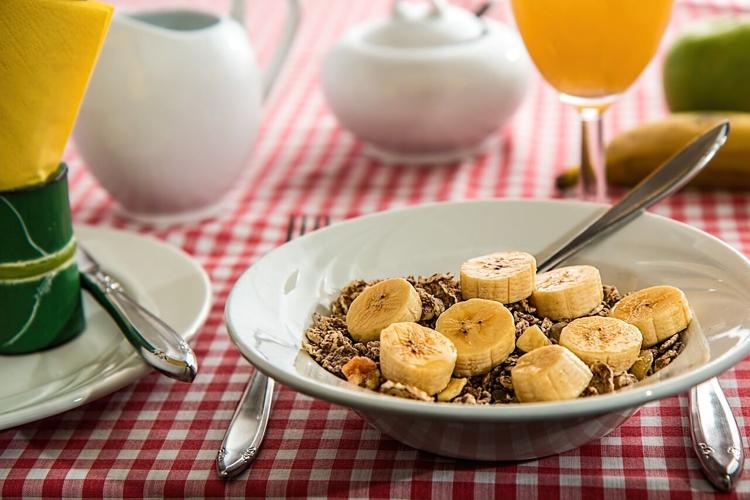
Probiotics have garnered considerable interest in the health and wellness sector, and for good reason. These friendly bacteria are essential for supporting gut health, particularly in children as they grow and develop. But how do you effectively incorporate them into a child’s diet? Here’s a guide that explores simple and practical ways to ensure your little one gets the beneficial bacteria they need for a healthy gut.
Start with Probiotic-Rich Foods: A Natural Approach
One of the easiest ways to introduce these kids probiotics into their diet is through foods that naturally contain them. Yogurt is perhaps the most well-known source, and it’s usually a hit with kids due to its creamy texture and mild taste. Opt for plain yoghurt with live cultures, as flavored varieties often contain added sugars that can get the benefits.
Consider Supplements: Convenience in a Bottle
While incorporating bacteria-rich foods into a child’s diet is ideal, it’s not always practical, especially if you have a picky eater on your hands. This is where supplements come in. Available in various forms such as chewables, gummies, powders, and liquids, these are designed specifically for children and are an easy way to ensure they get their daily dose of healthy bacteria.
When choosing a supplement, look for one that contains strains known to benefit children’s health, such as Lactobacillus and Bifidobacterium. It’s also essential to check the label for the number of live cultures, as a higher count typically means a more effective product. Many are flavored to appeal to kids, making it a breeze to incorporate them into their daily routines. It’s always advisable to consult a paediatrician before introducing any new supplement to ensure it meets your child’s specific needs.
Mix Them into Everyday Meals: Sneaky but Effective
If your child resists trying new foods or taking supplements, mixing these beneficial bacteria into their favorite meals can be an effective strategy. Powders are highly adaptable and can be mixed into a range of dishes without changing their flavor or consistency.
Incorporate Probiotic Snacks: Fun and Nutritious
Children love snacks, which can be an excellent opportunity to incorporate beneficial bacteria into their diet. Many companies now offer enriched snacks like yoghurt-covered raisins, granola bars, and even ice pops. These products combine the fun of snacking with the health benefits of healthy bacteria, making it easier to keep your child’s gut health in check.
Creating homemade snacks can also be fun and rewarding. For example, you can make your yoghurt parfaits layered with fresh fruit, nuts, and a sprinkle of granola. This provides a healthy dose of beneficial bacteria and adds fiber and essential nutrients. By involving your child in the preparation process, you can make it an enjoyable experience that teaches them the importance of good nutrition.
Make It a Routine: Consistency is Key
Incorporating these healthy bacteria into a child’s diet isn’t a one-time effort; it requires consistency to be truly effective. Establishing a routine where these additions are a regular part of meals or snacks can help maintain their gut health over time. Whether it’s a daily yoghurt at breakfast, a supplement with lunch, or a smoothie for an after-school snack, making these bacteria a consistent part of the day can have lasting benefits.
It’s important to remember that while probiotics are beneficial, they are just one part of a balanced diet. Providing your child with meals that include plenty of fruits, vegetables, and lean proteins will enhance their overall health and work synergistically with the benefits of probiotics. A balanced diet is crucial for a kid's well-being and development.
Monitor and Adjust: Every Child is Different
Every child’s body is unique, and their response to these additions can vary. It is essential to monitor how your child reacts after introducing these bacteria into their diet. Some children might experience mild digestive changes as their gut adjusts, which is usually temporary. However, if any adverse reactions occur, consulting with a healthcare professional is crucial.

Adjusting the type, amount, or frequency of intake may be necessary to find what works best for your child. Regular check-ins with an expert paediatrician can help guide these adjustments and ensure your child receives the maximum benefit. Remember, the goal is to support a healthy gut, which is vital to overall well-being.
Incorporating kids probiotics into their diet doesn’t have to be a daunting task. Incorporating bacteria-rich foods, supplements, and inventive meal ideas can seamlessly integrate probiotics into your child's daily routine in a natural and enjoyable way. With consistency and a bit of creativity, you can help your child build a strong foundation for a lifetime of good health.
Here are some other articles related to your search:



(0) comments
We welcome your comments
Log In
Post a comment as Guest
Keep it Clean. Please avoid obscene, vulgar, lewd, racist or sexually-oriented language.
PLEASE TURN OFF YOUR CAPS LOCK.
Don't Threaten. Threats of harming another person will not be tolerated.
Be Truthful. Don't knowingly lie about anyone or anything.
Be Nice. No racism, sexism or any sort of -ism that is degrading to another person.
Be Proactive. Use the 'Report' link on each comment to let us know of abusive posts.
Share with Us. We'd love to hear eyewitness accounts, the history behind an article.